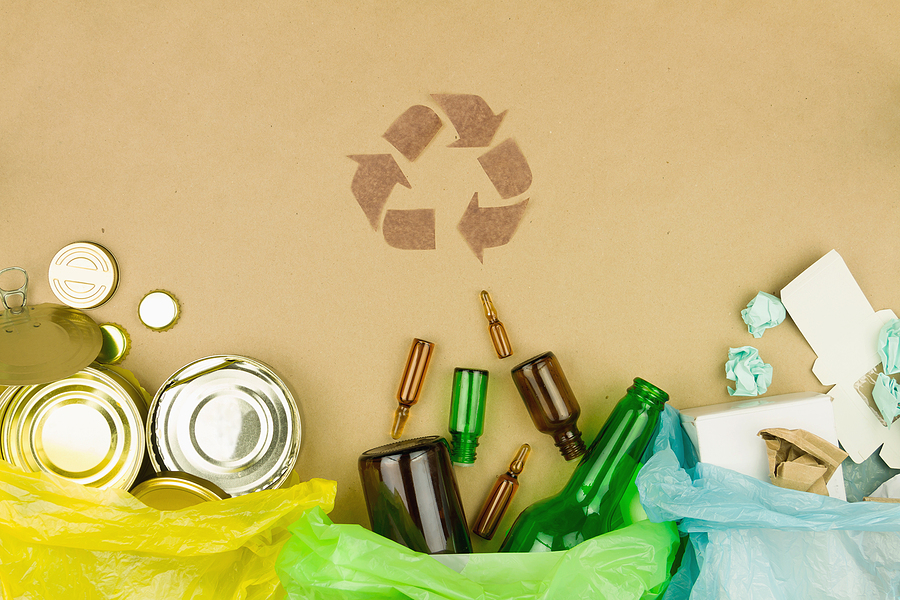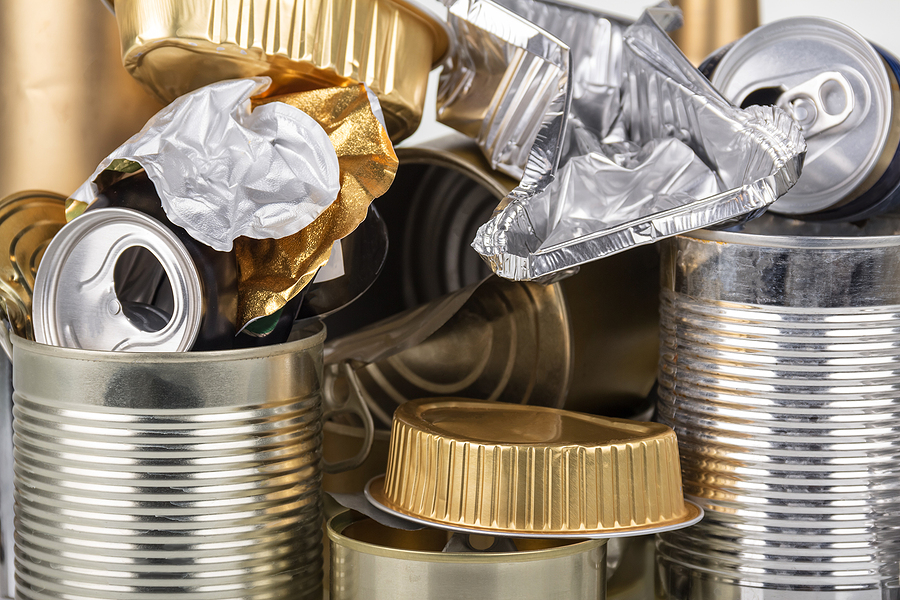The importance of recycling cannot be overstated. It’s a crucial step in preserving our planet, reducing waste, and conserving valuable resources. Recycling minimizes the environmental impact of manufacturing, lowers energy consumption, and decreases greenhouse gas emissions.
Understanding which materials are most commonly recycled helps us make informed decisions about our consumption habits and waste management practices. When we actively participate in recycling programs, we contribute to a circular economy that benefits both current and future generations.
Let’s explore the world of recycling and examine the most recycled materials, their processes, and the significant impact they have on creating a more sustainable future.

Top Recycled Items in the World
Paper and Cardboard: The Recycling Champions
Paper and cardboard consistently rank as the most recycled materials worldwide. These materials make up a substantial portion of household and commercial waste, making their recycling both necessary and highly beneficial.
The paper recycling process begins when recycled products are collected and sorted by type and quality. The materials are then cleaned to remove inks, staples, and other contaminants through a process called deinking. The cleaned pulp is mixed with water to create a slurry, which is then formed into new paper products.
Key benefits of paper recycling include:
- Significant forest conservation
- Reduced water consumption in manufacturing
- Lower energy requirements compared to producing virgin paper
- Decreased landfill waste
The statistics speak for themselves: recycling one ton of paper saves 17 trees, 7,000 gallons of water, and 3.3 cubic yards of landfill space (EPA, 2023). This remarkable conservation demonstrates why paper recycling remains a cornerstone of environmental sustainability efforts.
Metal Recycling: Maximum Efficiency and Energy Savings
Metal recycling represents one of the most energy-efficient and environmentally beneficial recycling processes available. Both ferrous metals (containing iron) like steel and non-ferrous metals like aluminum offer exceptional recycling potential.
Steel Recycling
Steel maintains its properties indefinitely through recycling cycles, making it one of the most sustainable materials on Earth. The steel recycling process involves collecting scrap steel, sorting it by type, melting it in furnaces, and reforming it into new steel products. This process uses significantly less energy than producing steel from raw materials.
Aluminum Recycling Excellence
Aluminum recycling offers perhaps the most impressive energy savings of any recycled material. The process saves 95% of the energy needed to make new aluminum from raw materials. Despite these incredible benefits, the recycling rate for aluminum cans in the United States hovers around 50%, indicating substantial room for improvement.
Companies like Zore’s Recycling serve as local leaders in metal recycling, promoting sustainability in Indianapolis and demonstrating how regional businesses can make significant environmental impacts. These organizations process thousands of tons of metal annually, preventing valuable resources from entering landfills while supporting local economies.
Metal recycling advantages include:
- Exceptional energy savings
- Indefinite recyclability without quality loss
- Reduced mining requirements
- Economic benefits through job creation
Sell Scrap Metal to Us for Cash Payment! ✨
Plastics Recycling: Navigating Challenges and Innovations
Plastic recycling presents both opportunities and challenges. While not all plastics are easily recyclable, certain types have established successful recycling streams that contribute significantly to environmental conservation.
Types of Recyclable Plastics
The most commonly recycled plastics include:
- PET (Polyethylene Terephthalate): Used in beverage bottles and food containers, PET can be recycled into new bottles, clothing fibers, and carpeting.
- HDPE (High-Density Polyethylene): Found in milk jugs and detergent bottles, HDPE recycling produces new containers, plastic lumber, and playground equipment.
Challenges and Solutions
Plastic recycling faces unique obstacles, including contamination, mixed plastic types, and limited market demand for certain recycled plastics. However, innovative solutions continue to emerge. Advanced sorting technologies use optical scanners and artificial intelligence to improve separation efficiency.
Chemical recycling represents a promising frontier, breaking down plastics into their molecular components for reuse in new products. This technology could eventually handle previously non-recyclable plastic types, dramatically expanding recycling possibilities.
Recycling one million laptops saves the energy equivalent to the electricity used by more than 3,500 U.S. homes in a year, highlighting the substantial environmental benefits of electronic device recycling, which often involves plastic components.
Glass Recycling: The Perfect Closed-Loop System
Glass recycling operates as a perfect closed-loop system, where materials can be recycled endlessly without loss in quality or purity. This characteristic makes glass one of the most sustainable packaging materials available.
The Glass Recycling Process
Glass recycling begins with collection and sorting by color—clear, brown, and green glass must be separated to maintain quality. The sorted glass is cleaned to remove labels and contaminants, then crushed into small pieces called cullet. This cullet is melted and formed into new glass products.
Glass recycling benefits include:
- Infinite recyclability without quality degradation
- Reduced energy consumption in manufacturing
- Lower raw material requirements
- Decreased carbon emissions
Using recycled glass in manufacturing requires less energy than creating glass from raw materials, as cullet melts at lower temperatures than the original silica, soda ash, and limestone mixture.
Frequently Asked Questions
What are the most commonly recycled materials?
The most commonly recycled materials include paper and cardboard, steel and aluminum, certain plastics (particularly PET and HDPE), and glass. These materials have established recycling infrastructure and strong market demand for recycled products.
How can I improve my recycling habits at home?
Start by learning your local recycling guidelines, as programs vary by location. Clean containers before recycling, separate materials properly, and avoid “wishcycling”—placing non-recyclable items in recycling bins hoping they can be processed.
What are the benefits of buying products made from recycled materials?
Purchasing recycled products supports the recycling market, reduces demand for virgin materials, and closes the recycling loop. These products often require less energy to manufacture and help reduce overall environmental impact.
Taking Action for a Sustainable Future
Understanding the most recycled materials empowers us to make better environmental choices. Each material type—from paper and metals to plastics and glass—offers unique benefits when properly recycled. The impressive statistics surrounding these materials demonstrate the tangible impact of our recycling efforts.
Individual actions collectively create significant environmental change. When we recycle paper, we save trees and water. When we recycle aluminum, we dramatically reduce energy consumption. When we properly sort glass and plastics, we support closed-loop systems that benefit future generations.
The long-term benefits of recycling extend far beyond immediate waste reduction. These efforts preserve natural resources, reduce pollution, and create sustainable economic opportunities. By participating in recycling programs and choosing recycled products, we invest in environmental sustainability for generations to come.
Start recycling today by identifying recyclable materials in your home and connecting with local recycling programs. Every bottle, can, and piece of paper you recycle contributes to a healthier planet and more sustainable future.
Contact Zore’s Recycling today to learn how our trusted scrap metal recycling services in Indianapolis can help you dispose of your unwanted metal responsibly. Together, we can turn scrap into opportunity while protecting the environment for future generations.
Get a Free Offer for Your Scrap Now!
Related Post: Understanding Scrap Metal Prices and How to Maximize Your Profits


